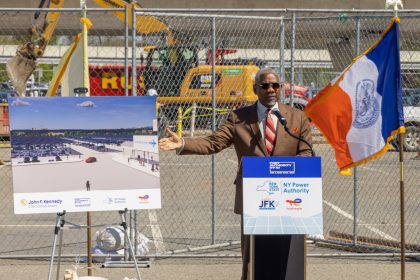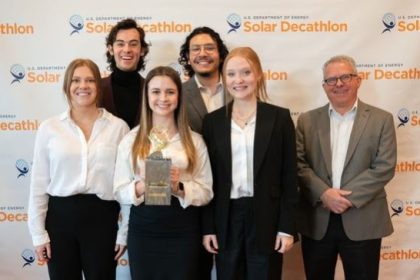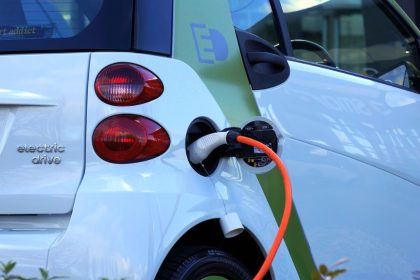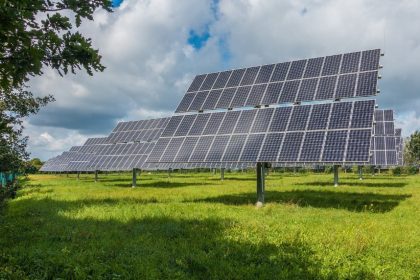$26M to Be Awarded for Projects Demonstrating Grid Can Run Reliably on Renewables

WASHINGTON — The U.S. Department of Energy plans to award a total of $26 million to fund projects that will demonstrate the nation’s electricity grid can reliably run on a mix of solar, wind, energy storage and other clean resources.
Funded by the bipartisan infrastructure law, the Solar and Wind Grid Services and Reliability Demonstration Program will show how clean energy resources can address key reliability challenges facing the grid by developing and testing tools and plant functions that allow the grid to stay online amid disturbances and restart if it goes down.
“Americans do not have to choose between a clean grid and a reliable one as we move forward towards our goals of a net-zero economy by 2050,” said Energy Secretary Jennifer Granholm in a written statement.
“Thanks to funding from President Biden’s Bipartisan Infrastructure Law, the DOE is proving that transitioning to solar, wind, and other renewable energy sources can keep the lights on without service interruptions, while creating good paying jobs,” Granholm said.
The U.S. electricity grid was, of course, originally built to deliver power from just a few large fossil fuel power plants to homes and businesses.
Today, the work of moving power across the grid is much more complex, featuring a mixture of traditional and renewable energy sources.
While past DOE investments have led to the development of new tools that enable grid operators to manage this increasingly complex network, officials now want to see those tools demonstrated at a broader scale to increase their adoption and build trust among grid operators.
The Solar and Wind Grid Services and Reliability Demonstration Program will fund up to 10 projects that demonstrate how large-scale solar, wind, and energy storage can support the power grid by automatically adjusting to changing demand and disruptions.
Projects, which require testing at a plant of at least 10 megawatts in size from a mix of solar, wind, or other generation or storage technology, will also demonstrate how a clean energy grid prevents blackouts by quickly identifying and responding to faults.
Academic institutions, private companies, nonprofits, state and local governments and tribal nations are encouraged to apply and form diverse teams that include representation from entities such as historically Black colleges and universities and minority-serving institutions, and community-based organizations.
An informational webinar will be held on Aug. 17 at 1 p.m. eastern time. Mandatory concept papers are due by Sept. 1 at 5 p.m. eastern time.
Dan can be reached at [email protected] and at https://twitter.com/DanMcCue.

























